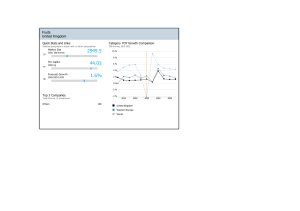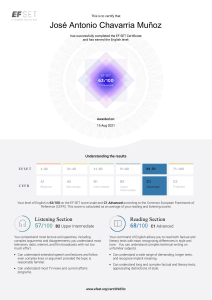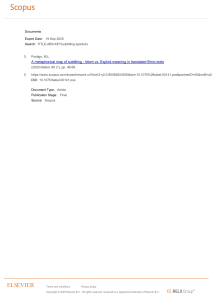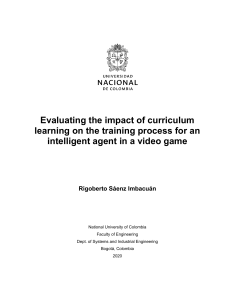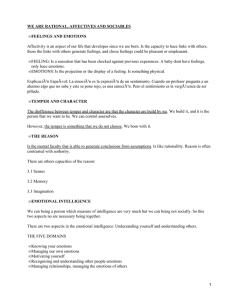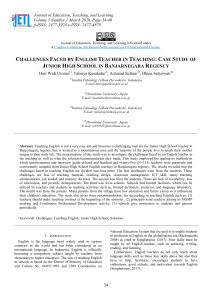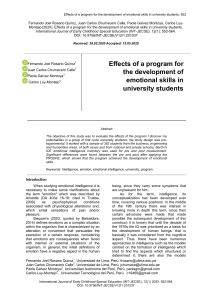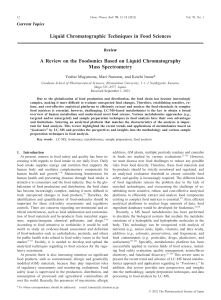Working Memory & Emotional Intelligence in L2 Writing
Anuncio
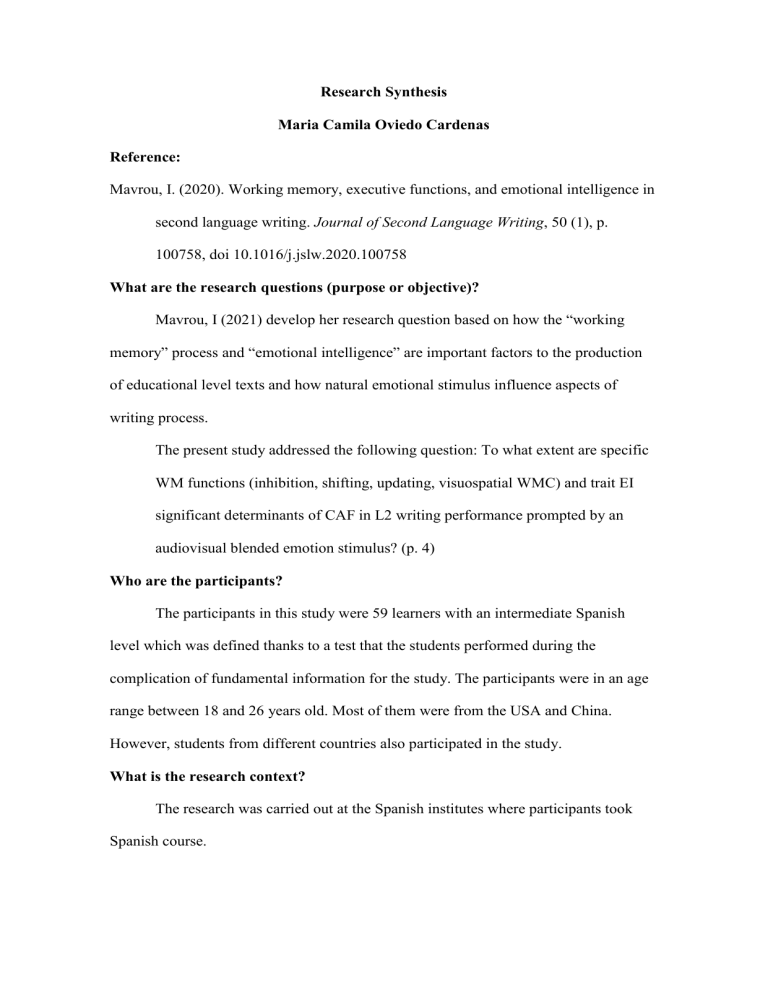
Research Synthesis Maria Camila Oviedo Cardenas Reference: Mavrou, I. (2020). Working memory, executive functions, and emotional intelligence in second language writing. Journal of Second Language Writing, 50 (1), p. 100758, doi 10.1016/j.jslw.2020.100758 What are the research questions (purpose or objective)? Mavrou, I (2021) develop her research question based on how the “working memory” process and “emotional intelligence” are important factors to the production of educational level texts and how natural emotional stimulus influence aspects of writing process. The present study addressed the following question: To what extent are specific WM functions (inhibition, shifting, updating, visuospatial WMC) and trait EI significant determinants of CAF in L2 writing performance prompted by an audiovisual blended emotion stimulus? (p. 4) Who are the participants? The participants in this study were 59 learners with an intermediate Spanish level which was defined thanks to a test that the students performed during the complication of fundamental information for the study. The participants were in an age range between 18 and 26 years old. Most of them were from the USA and China. However, students from different countries also participated in the study. What is the research context? The research was carried out at the Spanish institutes where participants took Spanish course. What are the major debates in the field that researches are reporting in the lit review? There are two specific areas that many researchers have study for this topic: the working memory and the emotional intelligence and how those relate or impact the process of L2 writing. Mavrou (2021, p. 2) define WM as “a mechanism comprised of both domain-general and domain-specific mechanisms that are necessary for the active maintenance and processing of information”. The working memory in L2 writing studies show that this process carry out by our memory is related to the writing ability and can define the proficiency of the student (Mavrou, 2018a, 2018b; Osle Ezquerra, 2012). Authors such as (Kormos & Sáfár, 2008) show that the level of ability of an L2 student may be evidence by their level of competence and aptitude and, as (Lu, 2010; Mavrou & Bustos-López, 2019) point out, these factors can determine if the writing level is good. “Trade-offs between fluency and subclausal elaboration in L2 writing have also been reported but only among low WMC learners” (Mavrou, 2018c). What these studies do not take into account are the emotional factors that can influence students and that can be reflected in their writing. The reason these variants are not taken into account is because studies focused on WM are already complicated due to all the non-mental factors involved that must be taken into account and that can affect the results in some way (Miyake & Friedman, 2012). "Thus, correlations —or lack thereof— between WMC assessed by these and other complex span tasks and measures of L2 writing performance should be interpreted in light of the specific processes and content domains that these tasks are supposed to measure” (Mavrou, 2020, p. 3). Knowing how to deal, recognize and accept emotions is an important part of L2 students, as the Council of Europe (2018) establish in the Common European Framework of Reference for Language that they must be on the capacity of communicate and identify emotions in an intermediate level. However, “the role of EI in L2 writing is admittedly less obvious (...) and findings of the few studies conducted to date are not always comparable” (Abdolrezapour, 2013). On the report of Shao et al. (2013) student’s performance when writing was noticeable incremented due to the focused class activities for training their EI. The relation between EI and L2 writing can be prove with the findings of Korpi and Farvardin’s (2016) studies which stablished that in fact, there are properties of EI related with L2 writing and that improve this competence. Another study made to verify the relationship between WMC, EI and their influence on L2 writing was the one carried out Mavrou and Bustos-López (2019) and in which was found that students who self-assessed with a high level of emotional intelligence obtained a lower performance in the area of writing. It was concluded that it could be due to the students' concern to develop a quality product, as a consequence their WM focused more on regulating their emotional side than on the production of the text. What are the main findings reported in this particular study? The level of concentration presented by the values or targeting measure, statistically speaking, had a greater tendency in the “Emotional Stroop Task, t-units and lexical variation”, each case corresponded to a specific variable. No variables related to WM were found. Executive functions, the one in charge to “update the information while modifying and replacing” (Mavrou, 2020, p. 9) was evidenced to be the main determinant of the CAF model in L2 writing. As stated by Mavrou (2020, p. 9) the cognitive process carried out by students to produce L2 writing involves both thinking about grammatical rules (spelling, coherence, verb tenses) and the process of ordering all these functions by themselves which entails a great and complex cognitive processing "especially when the level of L2 competence is low". Therefore, it is evident that WMC has different functions that control different types of processing, which are shown in long-term and short-term memory. Which are important for the production of L2 since students with an ability to update information in working memory produce better texts, more syntactically sophisticated and with fewer errors. (Mavrou, 2020, p. 10). As Ferreira and Engelhardt (2006) affirm the ability to update long-term memory “reduces the computational load of the grammatical encoder because the system can start with what is already accessible and wait for other elements to be available as the process develops. processing” (p. 83). On the contrary, a negative relationship was found between the performance of IE and L2. The conclusion reached is that a subjects with a greater development of the ability to update their working memory focus more on accessing their information bank (either short or long term) to produce better texts, leaving one side the emotional component. While subjects with a more developed EI use to overthink what they should do and are unable to control negative emotions such as anxiety when producing a text. As Mavrou (2020, p. 10) mention “process of emotional information at a deeper level or slower pace” which means that he does not develop his ability to update, therefore he cannot use his long- and short-term memory to produce better texts. How does the article shed light on your idea for a possible graduation project? Although throughout the career we have discussed topics related to the cognitive component and how the development of the mind is in people, having the knowledge and evidence of how it actually works and how the processing varies in each user helps to generate more interesting questions about what factors could help this process and how it influences the development of a person who is in the process of acquiring a second language. In this case, I was able to understand how important not only people's mental capacity can be, but how in a certain way affective factors can influence a person to be better or worse regardless of their degree of mental capacity. I consider that, just as poor emotional intelligence can have a negative effect on students, which leads them to overthink things and makes them "unable" to improve, the other intelligences, on the other hand, could have the ability to boost it and help it to better develop your working memory, which is something worth studying.
